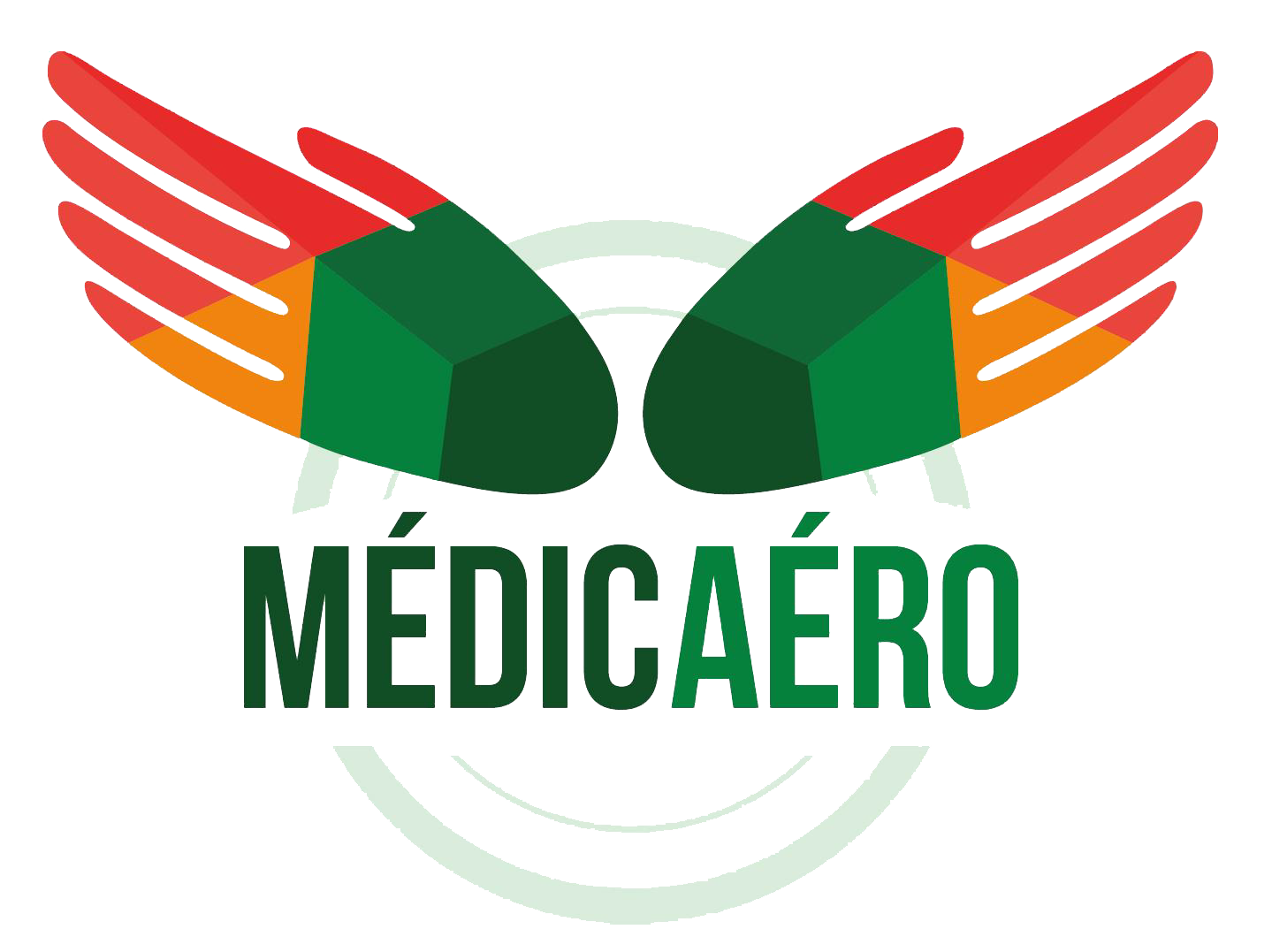Our Actions in Madagascar
Our teams travel by plane, with the support of Aviation Without Borders, to isolated areas south of Toliara and in Melaky. Several multidisciplinary missions are organized each year, bringing together pediatricians, gynecologists, midwives, general practitioners, ophthalmologists, dermatologists, and other specialists depending on availability, for a duration of about 2 weeks.
Our local representative, in collaboration with the bush medical staff, first conducts a pre-mission to identify the most severe cases to be treated as a priority. This preliminary phase is essential to ensure the effectiveness of our actions. During consultations, medications are also prescribed and distributed free of charge.
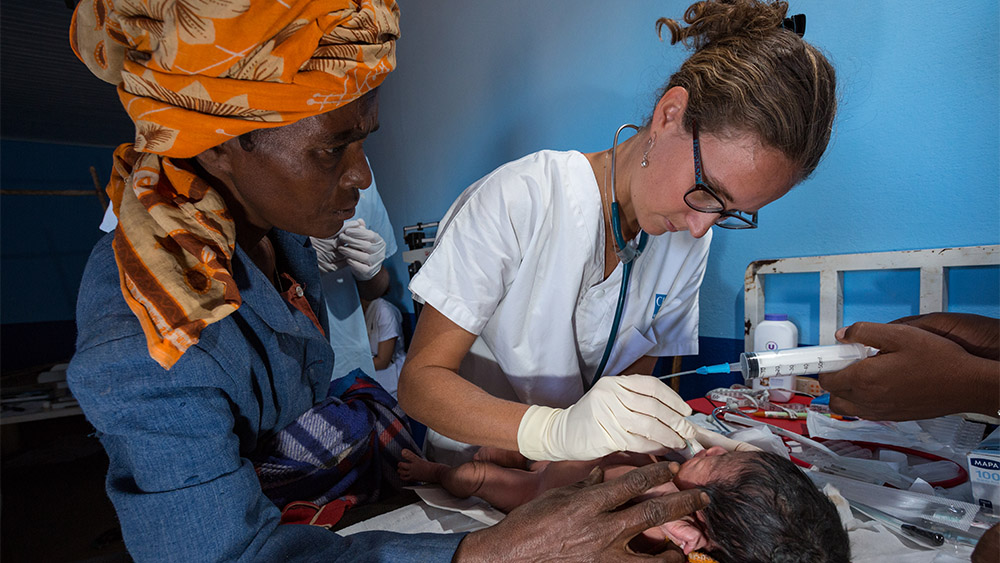
Outpatient consultations in the bush, covering all specialties
During each mission, about 800 patients benefit from a free specialized consultation. Each doctor sees 25 to 30 patients per day, always prioritizing quality and knowledge transfer to local actors.
The most frequent pathologies are digestive, gynecological-obstetrical, osteoarticular (arthritis, lower back pain…), respiratory (asthma, bronchitis, pneumopathy, tuberculosis…), or dermatological in nature. In cardiology, they are mainly congenital heart defects, valvulopathies, and heart failure. Medicaero teams also handle complications due to child malnutrition.
The creation of medical records and the monitoring of health booklets then allow for patient follow-up. Between missions, local doctors can also call upon Medicaero doctors for remote diagnostic assistance. We also work on pooling resources and information with other NGOs, such as Action Against Hunger.
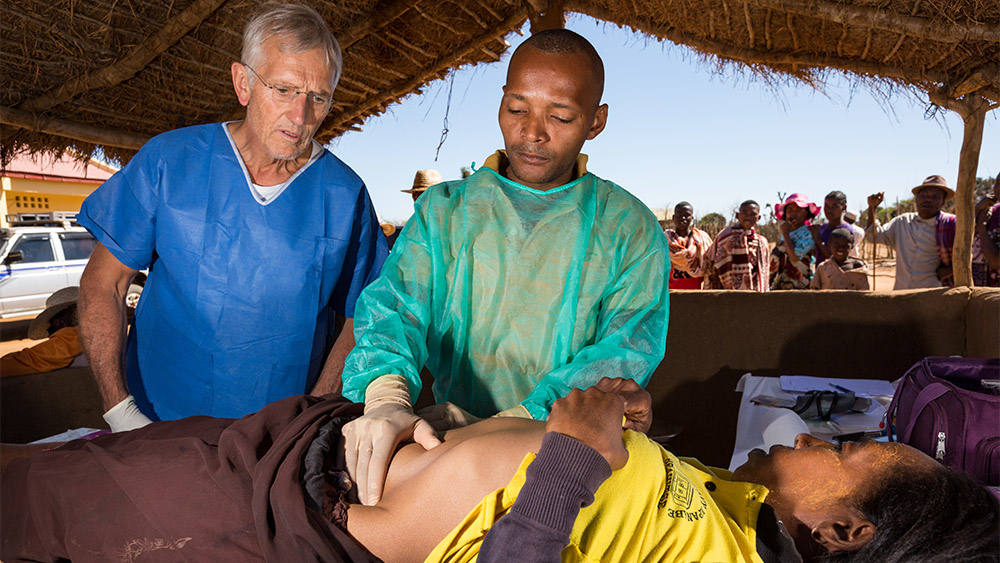
Emergency medicine and management of serious illnesses
Depending on the pathologies, Medicaero sets up a system for medical referral and transport to enable patients with serious conditions to access the care they need.
The association thus ensures the transfer of severe burn victims and patients in cardiology, oncology, or traumatology to the technical platforms of hospitals in Antananarivo.
Furthermore, Medicaero relies on health networks established by international organizations for the management of infectious diseases such as HIV, tuberculosis, and leprosy.
In gynecology-obstetrics, the association also plays a key role in facilitating access to ultrasound, a crucial diagnostic tool for monitoring pregnancies and detecting obstetric complications.
Ophthalmological surgery for cataracts and glaucoma
Cataracts, a major cause of visual impairment, due to the loss of autonomy they cause, quickly endangers the vital prognosis and the very existence of families in isolated areas. It is estimated to affect about 270,000 people in Madagascar. After acquiring a Zeiss Lumera 300 microscope (dismountable and transportable) in 2022, we now transport all the equipment from Antananarivo to operate on cataracts in the bush using the sutureless extracapsular technique (with IOL).
A sneaky condition often ignored, glaucoma is also managed by Medicaero teams through screening sessions, sometimes accessible to laser therapies. Thanks to airborne outpatient surgery, these surgical procedures are performed in adapted structures allowing for “clean” surgery. To date, several hundred people have regained their sight thanks to Medicaero.
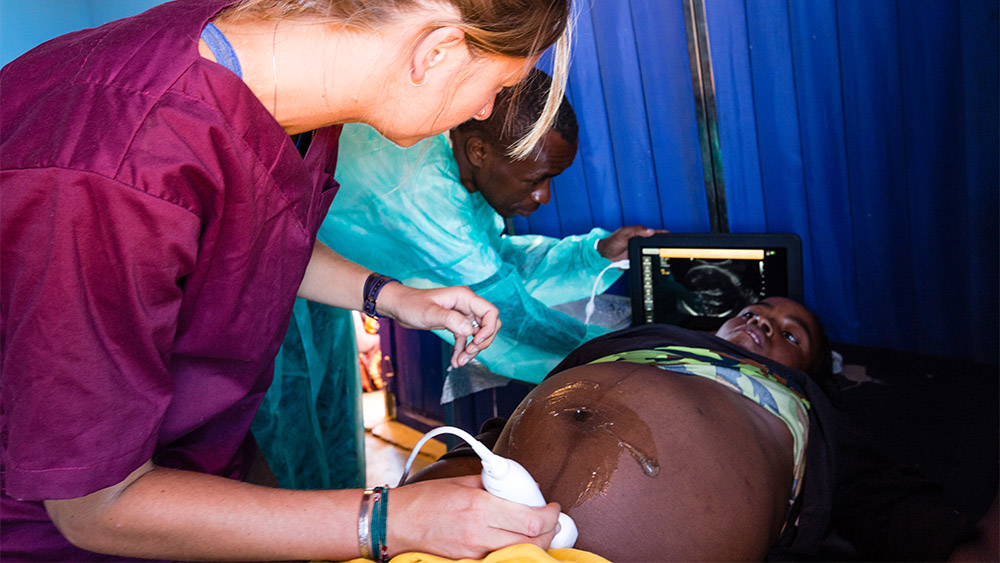
Maternal and child health security
Medicaero’s midwives, gynecologists, and obstetricians collaborate with midwives in isolated areas to consolidate their knowledge, secure pregnancy monitoring, and improve childbirth care. Ultrasound thus allows improvement of prenatal diagnosis and anticipation of potential complications. In parallel, sharing the fundamentals of obstetric gynecology – such as blood pressure monitoring, weight gain tracking, proteinemia measurement, and gynecological examinations – contributes to better support for expectant mothers, which allows for better detection of high-risk pregnancies or dystocia.
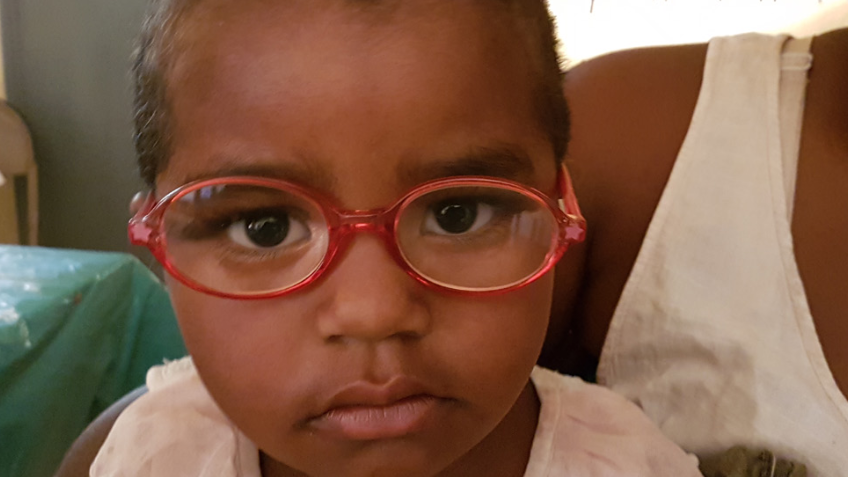
Ophthalmology and eyeglasses donations
During each mission, we distribute hundreds of pairs of glasses donated by Médico-Lyons Club of France and the Order of Malta.
The Malagasy population is primarily farsighted, consequently experiencing early pseudo-presbyopia. We thus contribute to maintaining many artisans (seamstresses, carpenters, masons…) in their professional lives and allow children to pursue normal schooling.
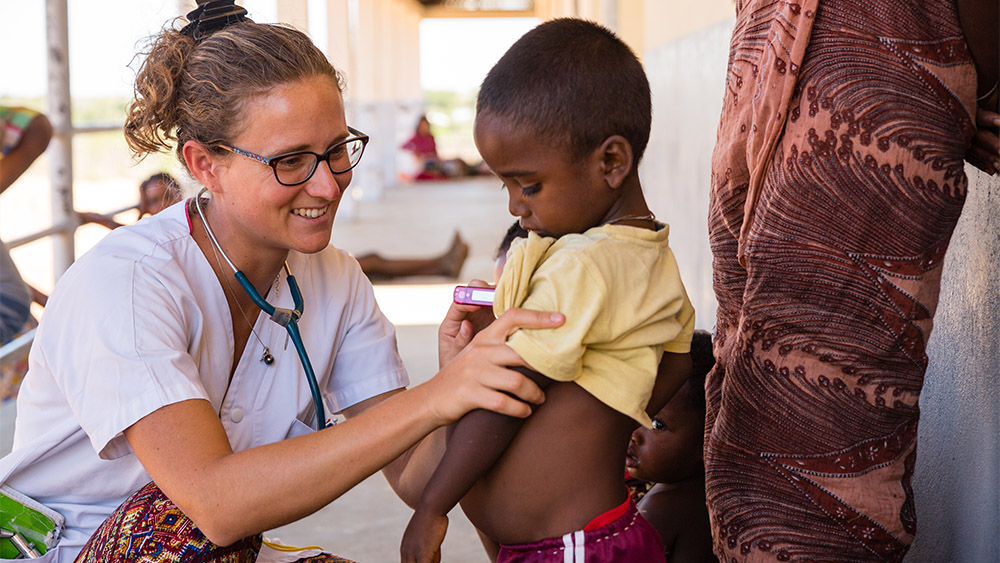
Hygiene education and fight against malnutrition
As the first victims of climate change, populations in isolated areas are increasingly suffering from malnutrition. Médicaéro teams work with local networks and the NGO Action Against Hunger, which have implemented methodical protocols to act effectively according to the degree of malnutrition.
In parallel, Médicaéro conducts a mission to raise awareness among the population about hygiene, nutrition, and lifestyle issues, while respecting local cultures. Emphasis is placed on preventing burns from domestic fires, water quality, and the need to monitor one’s health and that of children. This work is accompanied by the search for water sources (well drilling) and solarization projects.
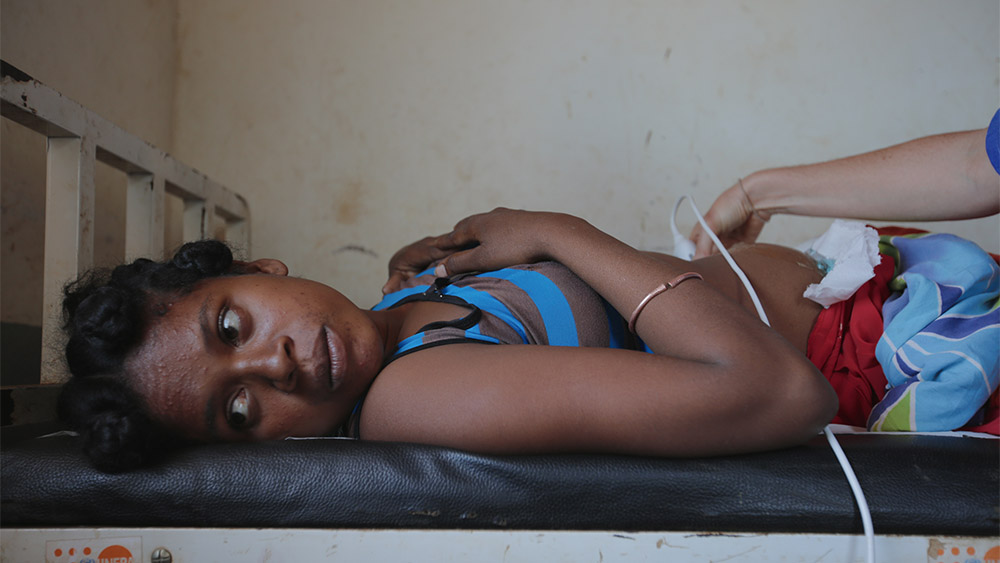
Early screening for cervical cancer
In the absence of regular screening and early symptoms, cervical cancer is often diagnosed at a very advanced stage. Authorities therefore recommend regular monitoring for women over 30-40 years old, even in the absence of symptoms. Vaccination against human papillomavirus (HPV), which is also an essential preventive measure, is not yet in common use in Madagascar. This virus is indeed responsible for the majority of cervical cancers. To limit early deaths related to these cancers, Médicaéro teams perform tests to detect precancerous lesions and treat them before they develop into cancer.
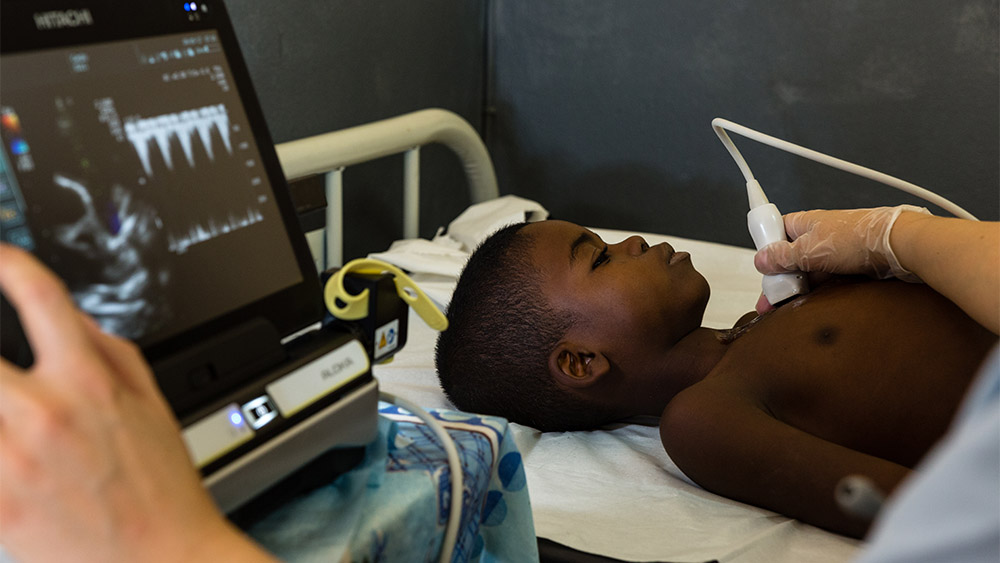
Screening for congenital heart defects
As everywhere in the world, 9 out of 1000 children in Madagascar are born with a heart defect that can be treated in half of the cases if caught in time. Médicaéro therefore offers Malagasy students and doctors who have received theoretical training, practical training in screening for heart diseases in babies and children at the University Hospital of TULEAR and in the bush. Patients are consulted in pairs during each mission, during which the diagnostic hypotheses of the Malagasy doctor are compared with the expertise of Médicaéro’s pediatric cardiologist. If necessary, a transfer to France for surgical care by our partner Mécénat Chirurgie Cardiaque can be proposed, thanks to a large human chain of mutual aid.
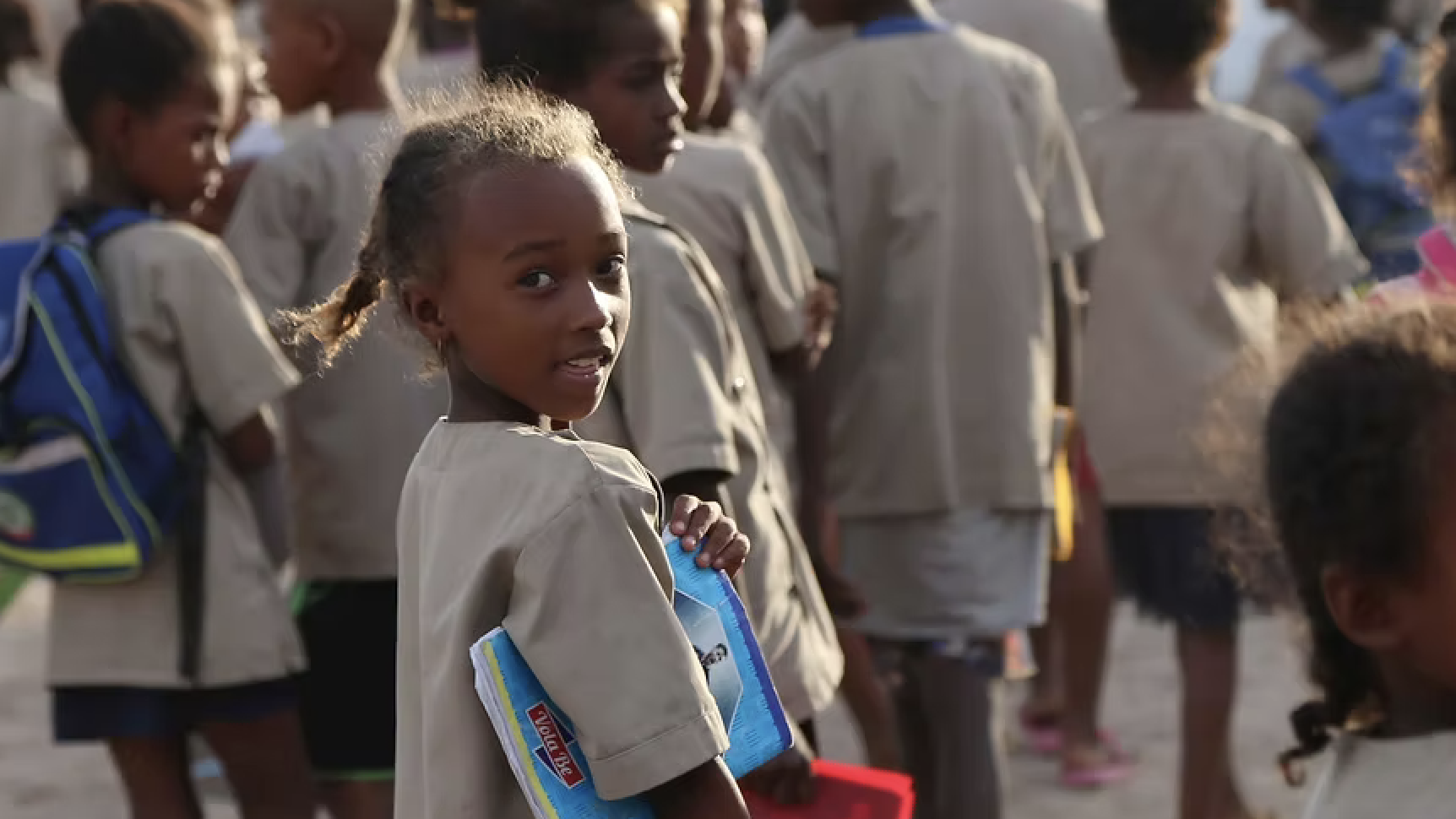
Massive School Screening with ABC Domino (June 2025)
The association ABC Domino has been working since 2004 to improve the living conditions of populations in southwestern Madagascar, particularly by facilitating access to education. It currently manages six primary schools, three middle schools, and one high school, educating approximately 3,960 students aged 6 to 16.
In June 2025, MEDICAERO will conduct an exploratory mission to perform multidisciplinary consultations for all students. These consultations will cover various medical fields, from pediatrics to ophthalmology, including gynecology (including family planning and sexual education), cardiology, podiatry… By detecting physical, psychological, or sensory disorders as early as possible, the objective of this type of recurring mission is to offer young Malagasy people better chances for the future.
